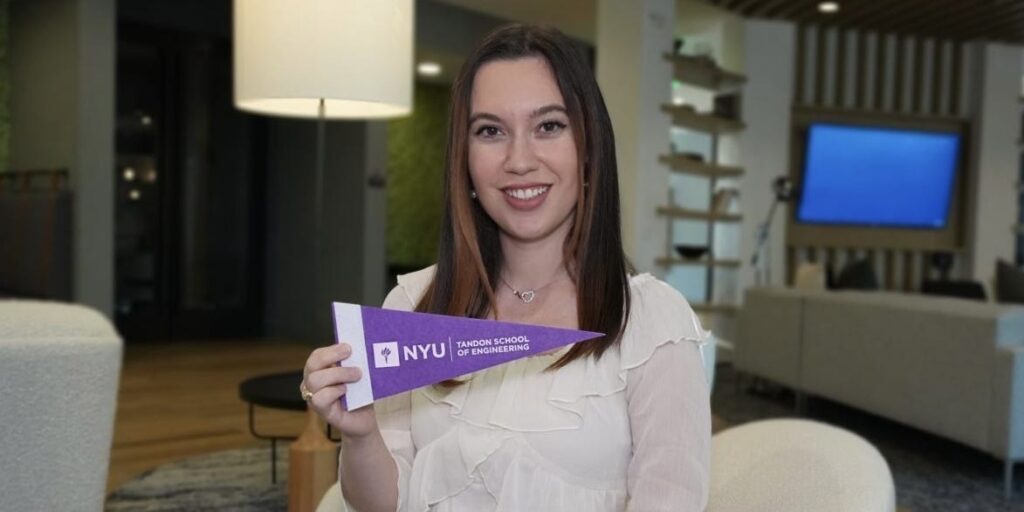This spring, my dreams came true: I was accepted to a tech-focused master’s program at New York University for Fall 2025. After breaking into the tech industry, I thought this would be the next right step.
I had been hopeful about receiving financial aid or scholarships, but none came through. I initially tried to convince myself that the $80,000 tuition was somehow manageable.
But my excitement started shifting to anxiety when I realized my only option was taking out student loans.
I couldn’t justify adding more debt to what I already owed from undergrad, especially for a degree that didn’t guarantee immediate career advancement after graduation. That’s when I started questioning if I was chasing prestige or purpose.
So I made a surprising choice instead: I enrolled in a community college certification program.
Discovering a more grounded path
While applying to NYU, I also started exploring ways to earn extra income and reconnect with community work.
Interpreting has always been a part of my identity through past volunteer work, personal projects, and as the daughter of a Mexican immigrant. My passion for using my bilingual skills in meaningful ways led me to research new interpreting opportunities.
While many organizations accept community-level credentials, most courtroom settings especially demand state-certified professionals. I wanted a qualification that would maximize my income and social impact, which requires completing an approved training course and passing a licensing exam.
I then found out that one of the most affordable starting paths was at the community college just around the corner from my apartment. Tuition for the three-semester track at Austin Community College totals $450, with each semester paid separately.
After contacting the college, I learned that the training is offered once a year. The start date was less than a month away, and there were only three seats left.
I needed to act fast. The question became clear: Should I choose a traditional two-year Master’s degree that carries crippling student debt or the shorter community college track that aligns with my roots and is easy to pay?
Within hours, I enrolled at the community college and paid for the first semester in full. The nervousness I’d once carried was immediately lifted.
Calculating the payoff beyond cost
Considering the growing national demand for Spanish legal interpreters, this work promises steady opportunities in courtrooms. This means I could recoup my low-cost tuition quickly, which is a return on investment most degrees can’t match.
While not graduate coursework, the workload demands serious dedication. I spend most days learning hundreds of legal terms in two languages and observing real-life hearings that the instructor invites us to.
By the time I complete the program in Spring 2026, I’ll already be in the process of earning my state certification, which grants me the authority to interpret in Texas courtrooms.
I now know I made the right financial and career decision.
My freedom is invaluable
It’s tempting to imagine what NYU would have been like. I would have started with online classes for the first year and relocated to New York City for the second.
But in reality, courtroom prep keeps my mind engaged and focused on the present.
This redirection allows me to stay home and further connects me to my native language without losing financial peace. It’s a freedom I consider worth more than a credential.



